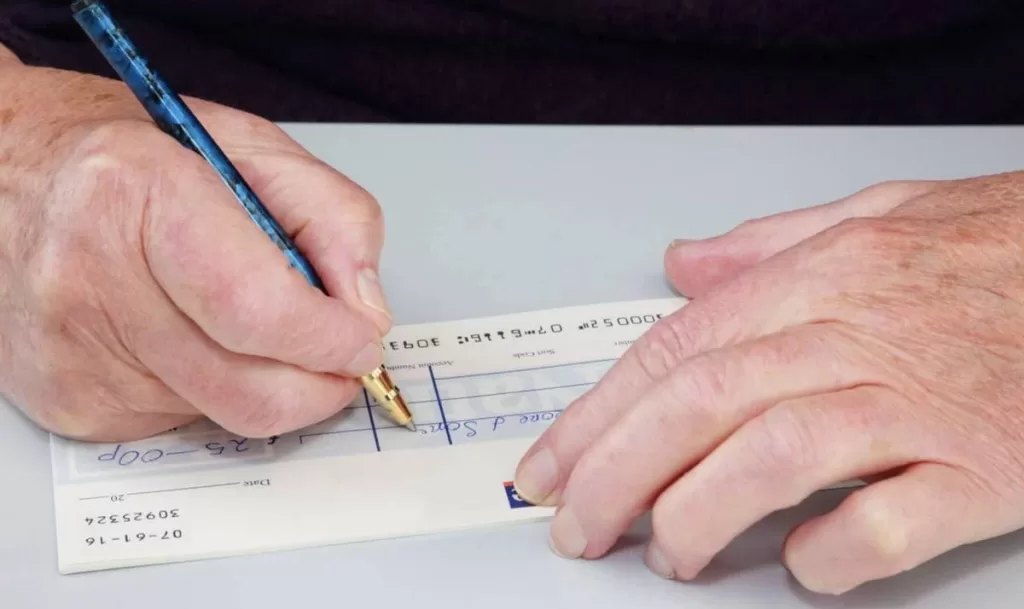TLC is a well-known legal consultancy that deals with a wide range of criminal cases. We are particularly experienced and qualified to deal with “Cheque Bounce Cases” because our attorneys have been serving clients in the UAE for many years. We have multicultural experiences, allowing us to work with people from all over the world who live in Dubai, Sharjah, Abu Dhabi, Ajman, Ras Al Khaimah, Umma Al Quwain, and Fujairah.
Our UAE legal counselors have significant expertise and skill in navigating cheque bounce problems, conducting arbitration and representation, processing all forms of legal paper works and documentation tasks to validate the financial outcomes in the country.

We can help you with such circumstances involving cheque bouncing, as well as provide you with valuable advice on all aspects and outcomes. We provide advice and assistance to government agencies, corporations, banks, financial institutions, and individuals. We develop the proper tactics and always achieve the required breakthroughs that may warm your heart’s cockles.
Cheques bounce issues/complaints/cases are perceived to be long-term hitches for individuals in the UAE. It is classified as a crime and comes with legal implications/punishments that may be severe and intimidating. When it comes to paying bills, cheque bounce difficulties can appear in a variety of situations, including individual and personal transactions, commercial transactions, purchases, property rentals, bank loans, and so on.
According to Article (3) of the Federal Law No. (3) of 1987, “the penal code may be proliferated against offenders both in criminal and civil court. “As a result, it is critical for everyone who deals with cheques in the UAE, especially those who are not wanting to “knowingly” break the law and face the consequences, to understand how to create and accept cheques correctly.
Many causes may result in a cheque being disputed/filed; however, the most common reason is that the defaulter has failed to pay his or her creditor on a certain date. The Penal Code (3) of 1987 of the UAE Federal Law inseminations, which establishes penalties for offenders, may be pursued against them through both criminal and civil procedures. As a result, it is critical for everyone dealing with cheques, especially those who don’t want to commit the offense on purpose and risk facing the consequences when their cheques are bounced for the ensuing reason.
In accordance with the legal order of 2017, which was issued on November 10, offenders who have returned cheques worth less than AED 200,000 may be handled or judged by the prosecution without being passed to the court, which is punishable by a maximum fine/penalty of AED 10,000.
If the cheque amount is greater than AED 200,000, it will be forwarded to criminal court, where the offender may be fined or sentenced to jail.
The current legislation regarding bounced cheques will be altered from January 2, 2022, according to the amendment of Federal Law of 1993, No: 18 last September. In accordance with the new change, banks must refund any remaining balance in a defaulter’s account to claimants in order to satisfy their demands. To assist the beneficiary in reducing the time gap and to protect his/her rights, a returned cheque will be treated as a valid document that may be enforced and immediately executed in the UAE Court.
Nonetheless, the amendment guarantees the rights of cheque beneficiary by treating the cheque as a genuine deed, speeding up collection efforts in civil court. Civil courts can order the issuer of the returned cheque to pay out the whole amount against the cheque, as well as any outstanding balance. If he does not make payments, his assets may be seized and he will be imprisoned for defying the court’s decision.
In addition, Article 642 establishes a new penalty in the form of publishing the judgement of the person convicted in two local newspapers (one in English and one in Arabic), as well as the name, profession, and residence of the convict. In addition, the convicted individual is responsible for covering the costs associated with publication.
TASHEEL LEGAL CONSULTANCY LLC © All Rights Reserved 2021